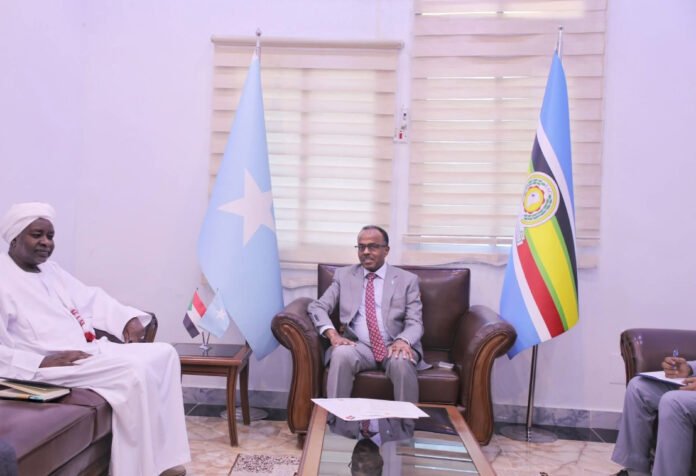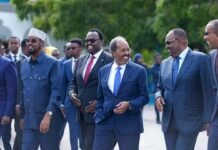By HAN News Desk
MOGADISHU — The Sudanese Ambassador to Somalia visited the Somali Ministry of Foreign Affairs on Sunday for talks with Deputy Foreign Minister Ali Balcad, amid mounting diplomatic tensions related to Bosaso Airport in northeastern Somalia. The discussions follow Somalia’s recent decision to scale back its support for Sudan, a move that has drawn complaints from Khartoum.
Sudanese officials allege that Bosaso Airport is being used by the United Arab Emirates (UAE) as a transit point to transport private military contractors and weapons to Sudan. According to Sudan, the UAE is bypassing international scrutiny by routing military supplies through Somalia, allowing Sudan to receive arms and personnel while avoiding direct observation by global monitoring bodies.
The UAE, which has faced increasing international criticism for its involvement in conflicts in the region, has reportedly stopped direct arms flights to Sudan, instead relying on Bosaso as a discreet logistical hub. Sudanese authorities have indicated that this arrangement has complicated relations with Somalia, which has tried to distance itself from facilitating military operations that could attract international condemnation.
The ambassador’s visit is being interpreted as an effort to address these tensions diplomatically and to reassure Khartoum of Somalia’s continued engagement on bilateral matters. Analysts note that Somalia is attempting to maintain a careful balance, preserving ties with both Sudan and the UAE while navigating global scrutiny over arms trafficking and regional security.
Experts warn that continued use of Bosaso Airport as a conduit for military operations could destabilize the wider Horn of Africa region. Ongoing conflicts in Sudan, combined with foreign military involvement, raise concerns about potential spillover effects, including increased violence, refugee flows, and threats to maritime and air security along the Gulf of Aden.
Regional observers emphasize that Somalia’s role as a transit point highlights broader geopolitical dynamics, with foreign powers leveraging Somali territory to project influence in conflicts elsewhere in the Horn of Africa. Human rights and security organizations are calling for strict monitoring of airports and border points to prevent the escalation of arms transfers and to protect civilian populations in both Somalia and Sudan.
The situation underscores the challenges facing Somalia as it navigates regional diplomacy, international pressure, and internal security priorities while dealing with foreign military interests operating within its borders.





